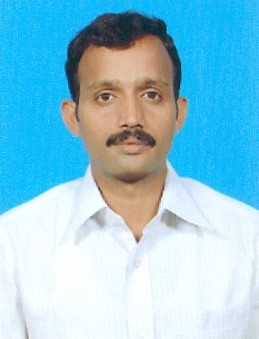Allied Science articles list
Assessment of dietary habits, nutritional status and common health complications of older people living in rural areas of bangladesh
Background: Old age is one of the vulnerable and prone stages in terms of health status. So this study aimed to assess the nutritional status and common health complications of older people. Methods: Simplified Nutritional Appetite Questionnaire (SNAQ), Anthropometric measurements, Diet History Method, and Mini Nutritional Assessment (MNA) tools were used to measure the nutritional status. Data were analyzed by using Statistical Package for Social Science (SPSS) version 16. Results: Out of the total 320 elderly participants the mean SD value for the age of male and female was 67.25 6.5 and 67.32 7.7 years respectively. According to BMI classification, it was noticed that with advancing age the percentage of underweight was also increased such as for 60–75 years old age group the underweight percentage was 30.0% where for 76 to 85 and >85 years old age group the underweight percentage was 45.0% and 60.0% respectively. According to the MNA score, 97 elderly respondents were malnourished and a total of 172 respondents had SNAQ scores below 14. This study found a statistically significant (P < 0.05) correlations among various health complications with nutritional status according to MNA score. In addition 56.6% (OR ¼ 1.24, 95% CI ¼ .799–1.939), 63.8% (OR ¼ 1.18, 95% CI ¼ .745–1.857) and 64.7% (OR ¼ 1.14, 95% CI ¼ .720–1.804) respondents had diabetes mellitus, hypertension and cardiovascular disease respectively. The risk of musculoskeletal pain (OR ¼ 1.073, 95% CI ¼ .684–1.681), bedsore (OR ¼ 1.884, 95% CI ¼ .903–3.934) and decreased sense of thirst (OR ¼ 1.278, 95% CI ¼ .821–1.991) were higher among females than males. A little number of the elderly used to take milk, meat, and fish daily. Conclusion: During this cross-sectional study, significant correlations among nutritional changes with health complications were determined. To prevent malnutrition among the elderly a proper health policy as well as periodical nutritional screening should be conducted
Numerical investigations of aerodynamics performance of blunt nose cone with aerodisk at hypersonic flow
The blunted nose cone with and without a sharp aerospike and an aerodisk of various diameters and lengths are investigated numerically in detail in the current study at a hypersonic Mach number of 10. The aerodisk diameter is described as d/D ratios such as 0.2, 0.4 and 0.6, and the length of the aerospike is represented as the L/D ratio of 1, 1.5 and 2. The main objective of the research is to examine the aerodynamic properties of blunt noses with and without aerodisks and aerospikes, as well as the influence of shock production over the model. The design of blunted nose cones with aerodisk was made up using CATIA and numerical investigation was performed on the ANSYS Fluent. The turbulence model of SST k-omega was considered for study. The current study revealed that shock patterns drastically varied nearer to the nose cone model at L/D ratio 2 and variation of drag reduction occurred due to the increase in d/D ratio and aerospike and also flow pattern over the model was clearly investigated.
Most Popular Category
- Pharmacy (258)
- Education and social science (216)
- Pharmacology (211)
- Pharmacognosy (173)
- Business management (147)
- Pharmacology and toxicology (132)
- Education and training (126)
- Pharmaceutical sciences (126)
- Research (121)
- Medicine (111)
- Management (98)
- Health Science (96)
- Computer Science (87)
- Human resource management (83)
- Biological Sciences (83)
- Computer Science Applications (80)
- Engineering (77)
- Accounting and finance (73)
- Information technology (67)
- Public health (60)
 Arafat Hassan Razon
Arafat Hassan Razon  Boopathy Govindarajan
Boopathy Govindarajan